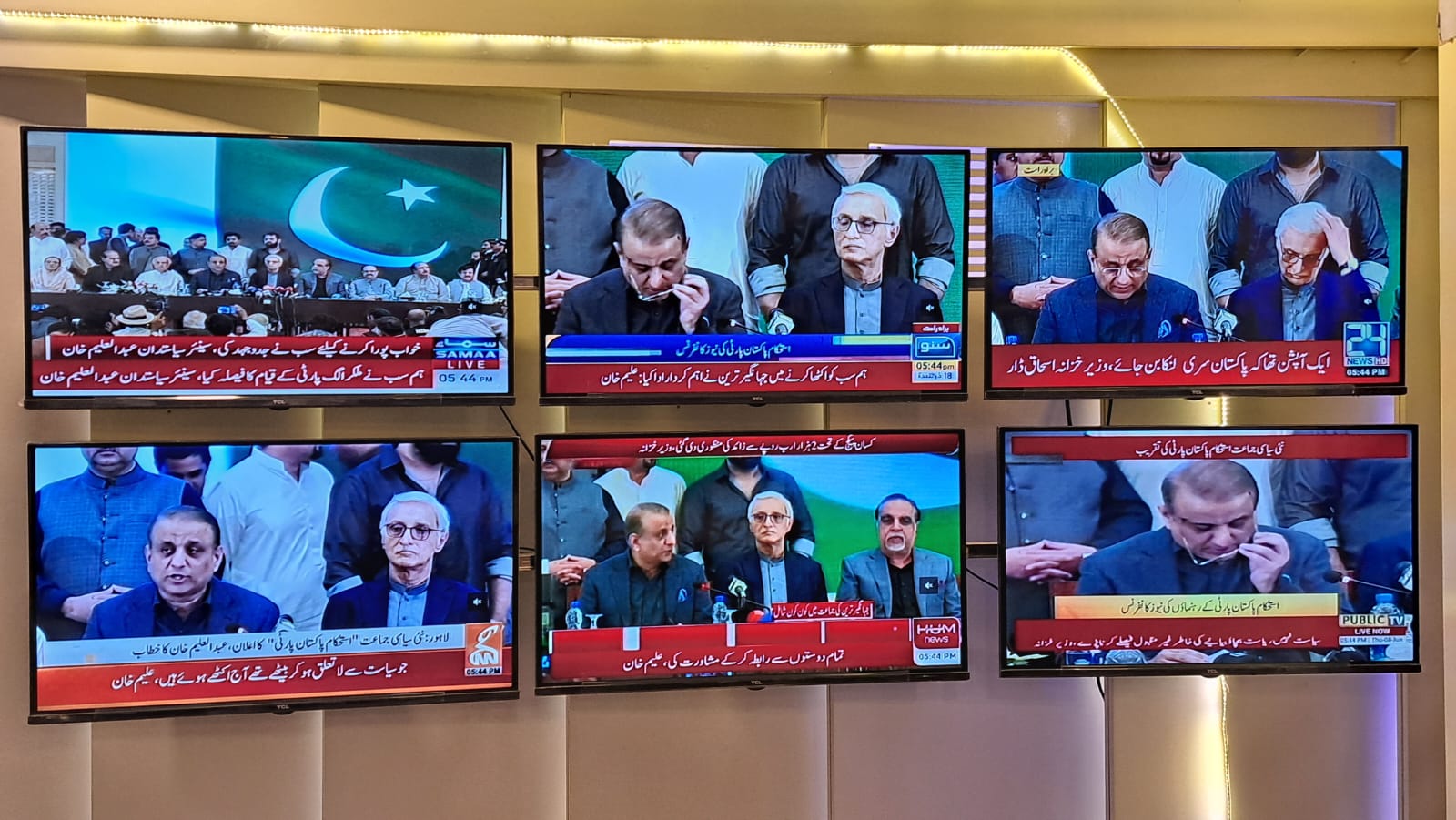Alumni Voices
Battle of Narratives

Behind the Scenes in a newsroom in Lahore
© Friedrich Naumann Foundation for freedom - Pakistan , RizwanI was six years old when Pakistan became a front-line state in the global War on Terrorism. I saw how quickly the country changed; schools were regularly shut down, festivities became smaller, there were no civic space movements, and people started fearing large crowds for fear of suicide bomb blasts. In all of this, we’ve lost twenty years of nation-building and peace efforts. But none of this was being talked of, or enough, in mainstream media. We were and continue to be viewed as a nation that harbored terrorists.
As an impressionable young woman, the narratives surrounding this war is what prompted me to become a journalist. I realized that how we were being portrayed in media wasn’t doing justice to the cost of our involvement in the war. There were sacrifices from all sections of society, and while we continue to bear these costs; it is disappointing to see how our media landscape hasn’t collectively been able to build a pro-Pakistani narrative on the war.
Since its creation, Pakistan boasted its military for protecting the country against foreign aggressors – our media carried the narrative. Our heroes were never scientists or academics but martyred soldiers who continued to be celebrated for their sacrifices for the people. With military being looked as the possible solution in every crisis, South Asians’ White Saviour complex was transferred to military personnel. The extravagant glorification increased under every dictatorial regime – reaching to highs under President Musharraf with the onset of the War on Terror. There was a lot of conversation about the military’s sacrifices against internal aggressors and external militarized outfits – and very little of the citizens directly impacted by the ongoing conflict. With the narrative set to glorify the military, any voice found critical of the security establishment was to be condemned. While journalists and activists were harassed and regularly picked up, the international media was focused on tarnishing this perfect image of a savior.
When Homeland’s episode featuring ‘Islamabad’ was released, Pakistanis were appalled. But in all of this, our own media is to be blamed for it has for years portrayed the country as such.
Turning a blind eye to the institutional corruption existing within, and not talking about the human cost of war, while boosting the military- has failed to paint a truthful picture at the center of which should’ve been the citizens. For two decades we could not progress socially as we did not have any civic space movements; there was no conversation on women’s empowerment, equitable access to health and education, youth engagement, and sustainable development, because the existing resources and those given were being utilised to fight against the war on terror. For two decades, the media remained silent and failed to highlight how persistent conflict adversely changed the society, radicalised the masses, undermined democracy, and made people disenchanted with the security establishment.
For two decades we couldn’t progress socially as we did not have any civic space movements; there was no conversation on women’s empowerment, equitable access to health and education, youth engagement, and sustainable development, because the existing resources and those given were being utilised to fight against the war on terror.
The absence of critical writing and empathy in our mainstream media has proven to be detrimental for the challenges befalling Pakistanis in this century. Instead of being portrayed as a developing country which became the frontline state in the global war on terror that’s undergoing socio-economic development crisis and the threat of home-grown terrorist outfits; we are viewed as a country whose military benefited from a self-created war, and lacks the appetite to defeat terrorist groups, which has led to regional instability.
Where Journalism failed
The work of a journalist is based in facts and stories that when combined, form a narrative. Journalistic integrity is lost on most talk show hosts who change their worldviews and political inclinations on a regular basis. It was the same during the twenty years of war in Afghanistan; most journalists favored the military operations in the early years and then quickly turned against them. The conversation never really revolved around the victims of war, how it widened the urban-rural divide in terms of socio-economic development, how it left thousands of people as internally displaced and eroded their customs. And most importantly, how ethnic profiling for Pashtuns within Pakistan and for Pakistanis abroad has increased.
Most Pakistanis object to being portrayed negatively in media. When Homeland’s episode featuring ‘Islamabad’ was released, Pakistanis were appalled. But in all of this, our own media is to be blamed for it has for years portrayed the country as such.
It could’ve been a critical juncture if journalists had stood alongside activists from the northern part of the country (directly impacted by the war), and urged authorities for course correction in the aftermath of the war; de-mining the inhabitable lands, crafting plans for socio-economic development, critical analysis of ethnic profiling and ways of stopping it, ensuring more marginalised and minority voices were integrated into mainstream media, and an overall evaluation of where the war has left us. None of this has ever been a topic of discussion in Pakistan.
More than two decades later, we are in a similar situation again – the Taliban have taken over Afghanistan and the fleeing Afghans are coming to Pakistan through the porous border. With the future of this region tied to Pakistan, will the Pakistani media wake up to the on-ground realities before it loses out to the narratives set by international media once more? Only time will tell.
'Alumni Voices' is a series of articles written by Pakistani professionals from different walks of life on their perspective on current affairs of the country. The views expressed in this article do not necessarily represent the views of the Friedrich Naumann Foundation for Freedom.
